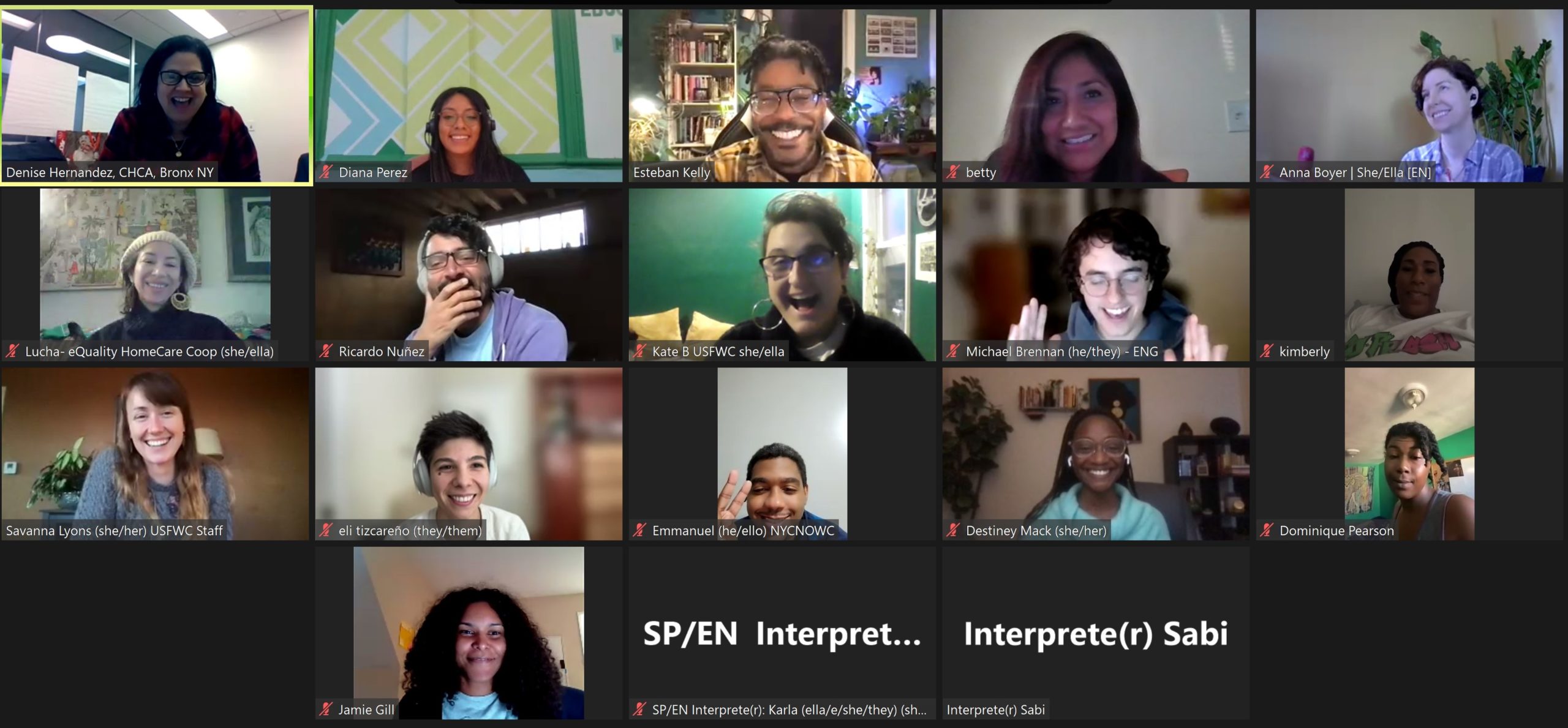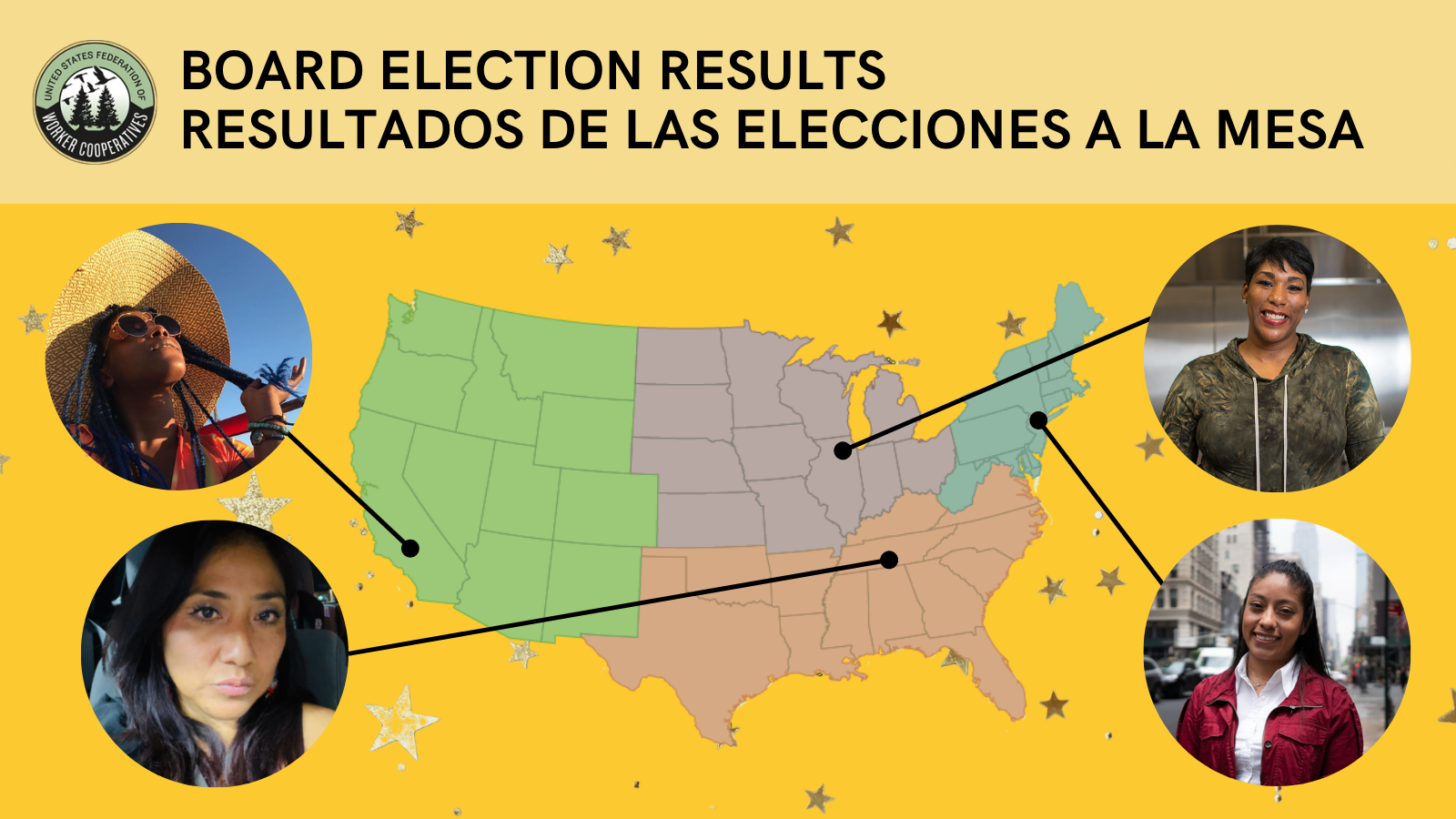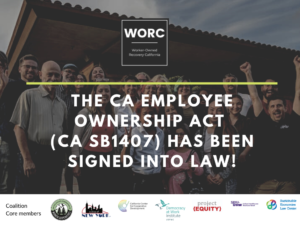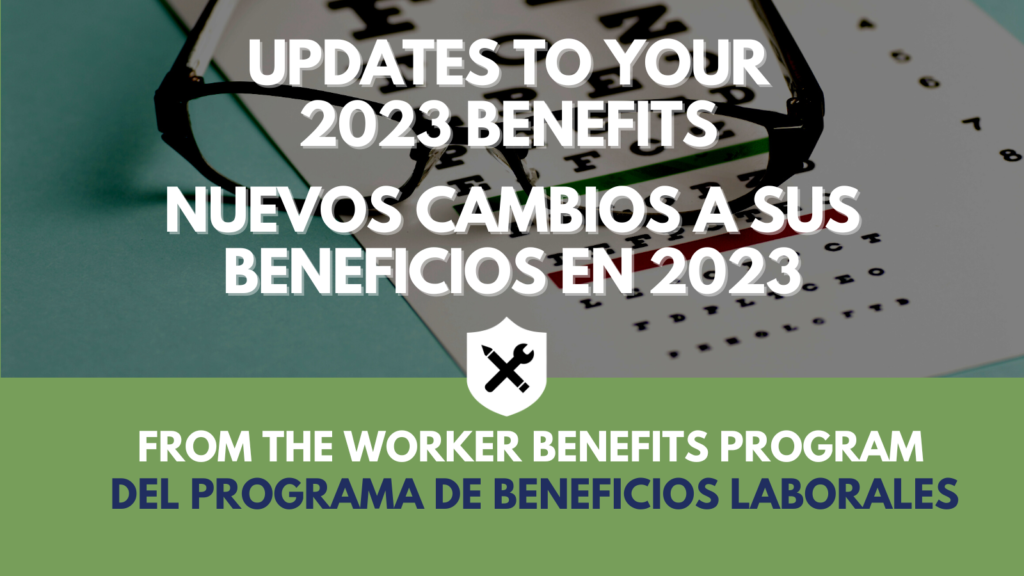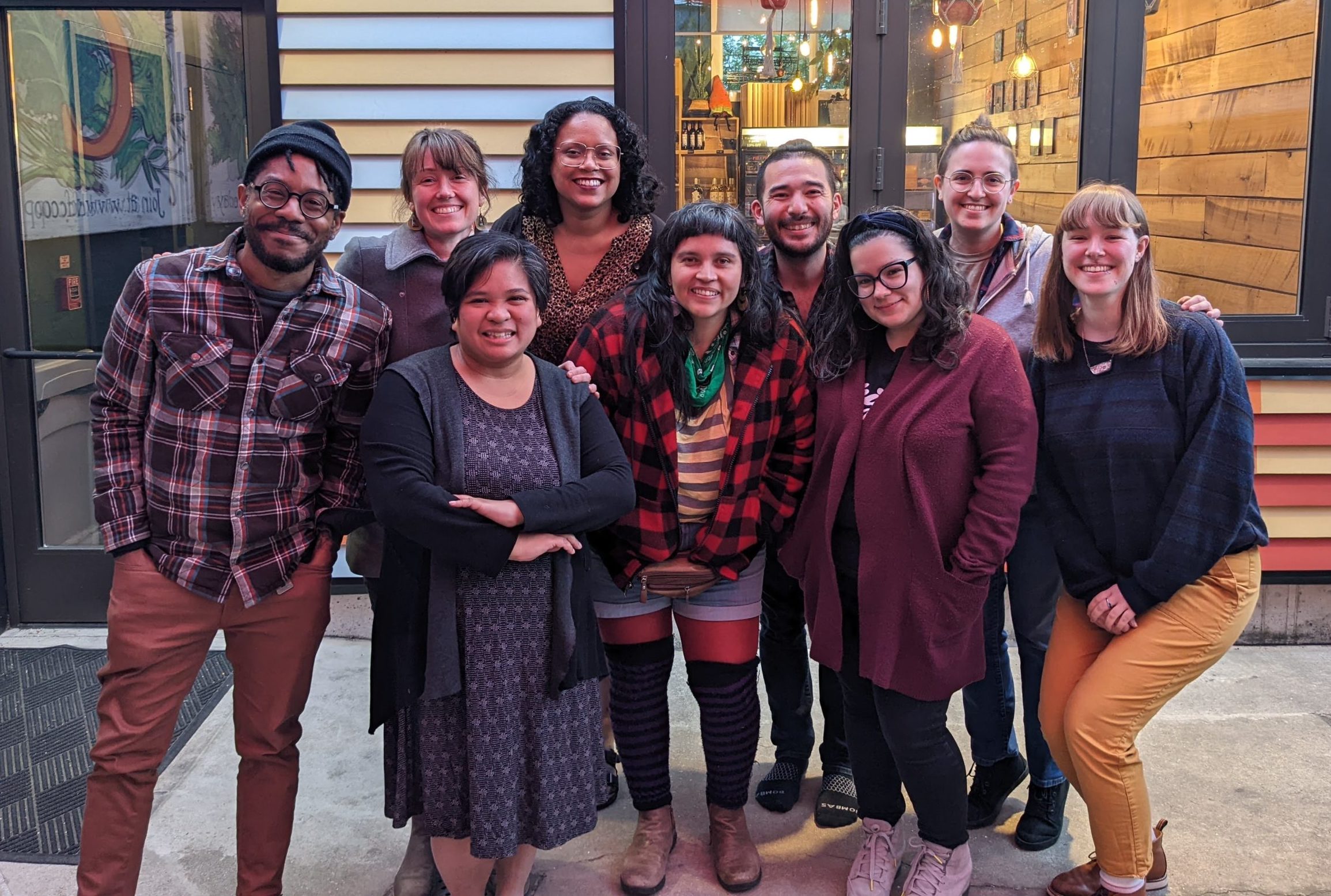
Para leer esta entrada en español haga clic aquí
Staff changes reflect growth in USFWC member-facing work
Fall is here, a time of transition where leaves change colors, winds blow colder and the harvest draws near. USFWC is embracing the energy of change as we say goodbye to team members while welcoming new ones.
In the last few weeks, we have said goodbye to staff members Ana Martina Rivas, Daniel Park, and Gabrielle Chapman. We are happy that their time as USFWC staff allowed them to grow their connections to co-ops and the work they are passionate about. They won’t be going far and remain friends and comrades who are building a thriving cooperative movement in other ways.
The winds of change have brought five new team members into the USFWC who bring a diversity of experiences, skills, and new capacity to our many programs.
These team changes reflect the incredible growth in the USFWC’s membership, staffing, and budget, particularly over the last 5 years. We have focused this growth on deepening our engagement with members through investing in member-facing staff and programs. This growth means the USFWC is better able to help our members weather storms, take advantage of opportunities, connect with and support one another, and create more favorable conditions for the formation and dynamism of worker co-ops. Together these changes mean growth for our mission to build stable, empowering jobs through worker-ownership.
Learn more about these transitions below.
Welcoming New Team Members
Alicen Brown joined our team back in June as the Training Administrative Assistant, a new position supporting administration and client relationships for our Co-op Clinic and Consulting work. Alicen comes to us with over ten years of experience advocating for historically excluded families, communities, businesses, and organizations. Her experience includes consulting with organizations to improve operational effectiveness through developing strategic plans, identifying strategic goals, and improving systems and processes. Alicen is based in North Carolina.
Maureen Darras is transitioning in as Training & Technical Assistance Manager as Ana Martina departs the role, developing curriculum and delivering training for the Co-op Clinic. Maureen has spent over a decade participating in rural peoples’ movements of the U.S. and Chile. Most recently she served on the leadership team of the Community to Community Development (C2C) program in Washington State training startups and supporting existing worker co-ops. Maureen is based in New Mexico.
Jeremy Pine is expanding his role with the USFWC. In 2021, Jeremy managed the partnership between the USFWC and the Organization for Economic Cooperation and Development (OECD) on the latter’s Global Action Promoting Social and Solidarity Economy Ecosystems. Currently, Jeremy is helping the USFWC to expand its international programs and its grant fundraising. He is from the Gulf South and is now based in Berlin, Germany.
Lauren Shiel recently joined us as our Membership and Worker Benefits Coordinator, a new position. Lauren lives in the Metro Atlanta area and has a background of organizing in the South, including working with low wage workers with Raise Up the South and the Fight for $15 and a Union campaign. Lauren also has experience with HR and benefits administration, making her a great fit for the USFWC Worker Benefits Program. Lauren is expanding outreach and engagement with our members and is also helping to administer and grow our member services, especially our worker benefits. You may have already gotten a phone call from her!
John-Michael Torres will step in as Communications Director, freeing up Mo Manklang to work full time as our Policy Director. John-Michael comes to us with over a decade of strategic communications experience with a background in campaign organizing and bilingual communications. He most recently led the communications work of La Unión del Pueblo Entero (LUPE) on immigration and border narratives in the Rio Grande Valley of Texas, where he is based. John-Michael will be directing our communications with members and building out our strategy for communicating with the public about worker cooperatives.
Saying Goodbye to Departing Staff
Gabrielle Chapman left her role as Membership Director in August. She is moving on to exciting work at Shared Capital Cooperative of St. Paul, MN. As Membership Director, Gabrielle expanded and clarified our member engagement strategy and laid a strong groundwork for growing our member organizing in years to come. Kate Barut will be filling in as Interim Membership Director as we do a hiring search for a permanent director.
Trainer & Project Manager Daniel Park transitioned out in September to focus on his worker co-op Obvious Agency and his work with Guilded, the multistakeholder freelancer platform cooperative incubated by USFWC. Daniel first came on at USFWC in an administrative role, where he helped shape our culture and built many of the systems that made it possible for our organization to grow. He later transitioned into managing our consulting work, where he has offered groundbreaking facilitation to nonprofit and government clients and partners on anti-oppressive and democratic workplace practices. We will miss Daniel’s keen ability to help groups unpack and reshape power dynamics, but we are happy that he will continue as a contractor for the Guilded team.
Ana Martina Rivas also transitioned off staff in September to focus full-time on building her worker co-op, Colmenar Cooperative Consulting. Ana Martina has been part of our team since it was a staff of two, building our membership programs as our Membership Director and later refining our Co-op Clinic services as our Training and TA Manager. Through her powerful bilingual organizing and training, her dedication to crisis response during the pandemic, her database know-how, and her commitment to community care, Ana Martina has shaped our organization and our movement in many important ways. We are happy that she will continue collaborating with us as a Peer Advisor for our Co-op Clinic and member of the USFWC’s Speaker’s Bureau.
Learn more about the USFWC team on our staff page here.
